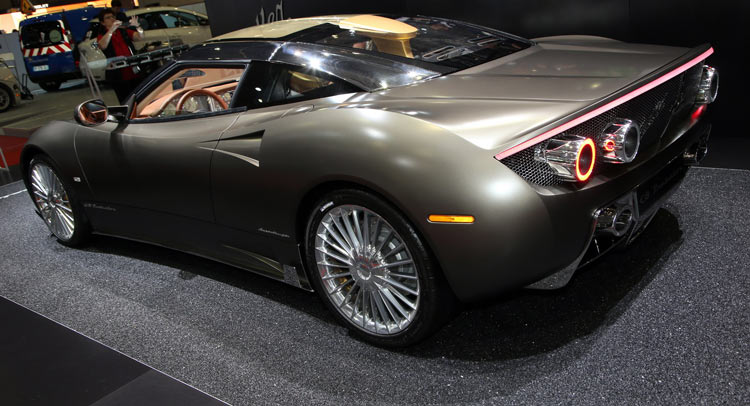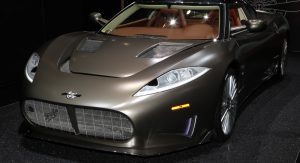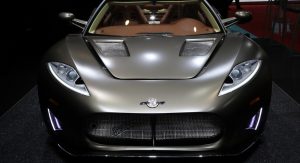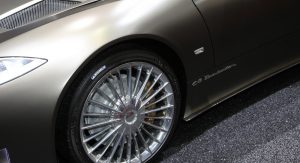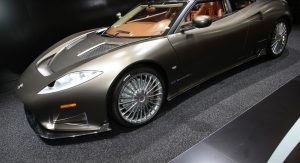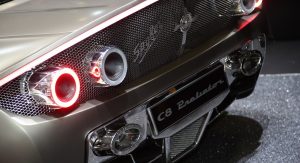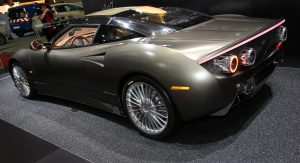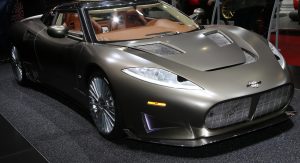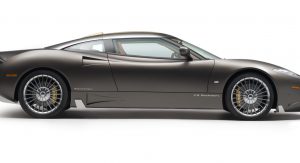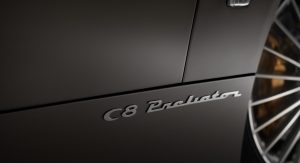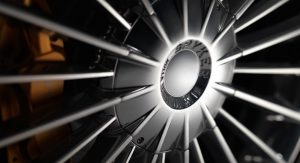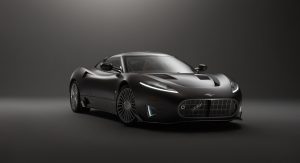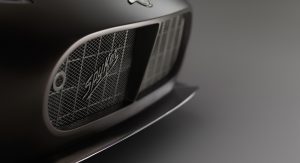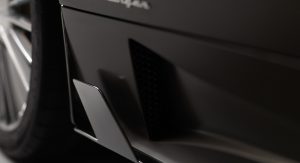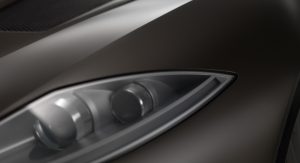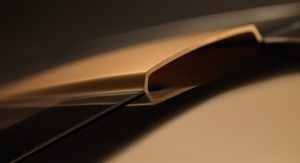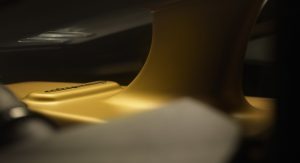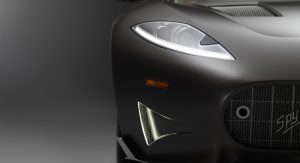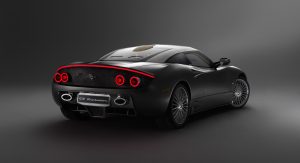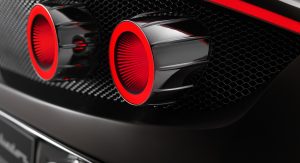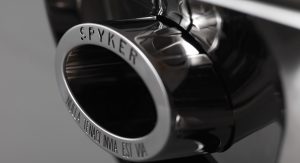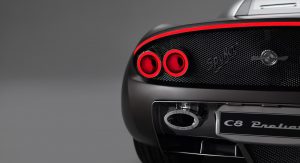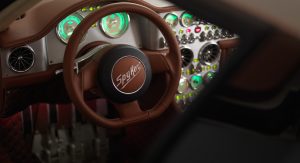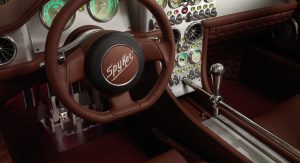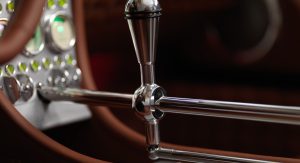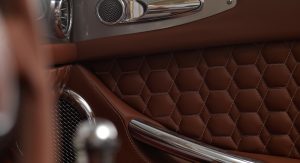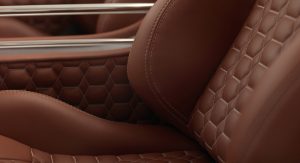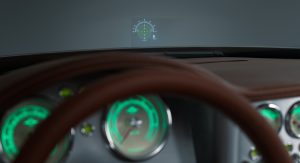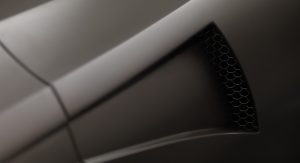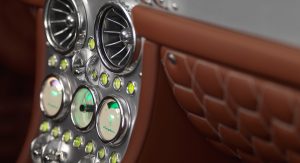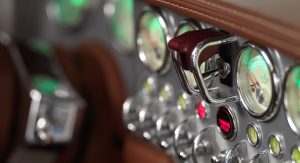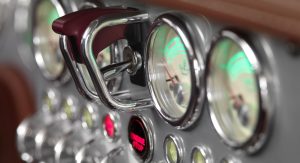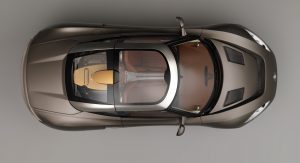Spyker makes its long-awaited comeback and debuts the C8 Preliator at Geneva.
The model’s name was carefully chosen to symbolize Spyker’s triumph over the troubled times it’s been through, as “Preliator” name means “fighter” or “warrior” in Latin. It also pays tribute to the manufacturer’s aviation heritage, when it manufactured “fighter” planes between 1914 and 1918.
The new car’s face may look familiar, but the Preliator is actually the worthy successor of the C8 Aileron, launched back in 2009 at Geneva.
Its contemporary design uses many style cues found on older models, but also emphasizes the company’s aviation heritage. For example, the first generation Spykers used the propeller design as the main theme, while the second generation focused on turbines. The Dutch car maker’s latest model’s main motif shifted to submerged air intakes (the so called NACA ducts), adopting the low-drag inlets throughout its overall design.
In order to reduce drag, several changes were performed on the exclusive model, as Spyker added small ailerons to the front splitter and side skirts to redirect the airflow optimally, abandoned the shark-like gills (resulting in a cleaner, smoother appearance), and obviously fitted the car with NACA ducts, replacing the conventional air scoops.
The CNC-machined stainless steel rear lights are made of LEDs (light-emitting diodes) emulating fighter jet afterburners, while the brake light has been sculpted into the rear panel so as to ensure smooth flowing design lines. The new 19-inch Turbofan wheels complete the design, while the 16 standard colors allow customers to create the perfect bespoke car.
Under the body hides an all-aluminum space frame which further increases torsional rigidity to staggering stiff 24.000Nm/degree structure and incorporates the Lotus supplied suspension system. Even the vehicle’s dimensions have been optimized, with the car growing in length (compared to its predecessor), providing more comfort and stability.
The rumor saying the C8 Preliator will be animated by an all-electric powertrain fortunately/unfortunately (depending how you look at it) turned out to be wrong, as the automobile gets the same Audi 4.2-litre V8 engine Spyker used from the very beginning, although now it develops 525hp and will be available with two transmission alternatives (a 6-speed manual, with ratios perfectly matched to the engine, and a ZF 6-speed auto with pedals behind the steering wheel).
The interior was revised for comfort, resulting in a higher comfort level and improved ergonomics. Don’t worry, though, because its exclusivity, uniqueness and bespoke-made details are still there.



